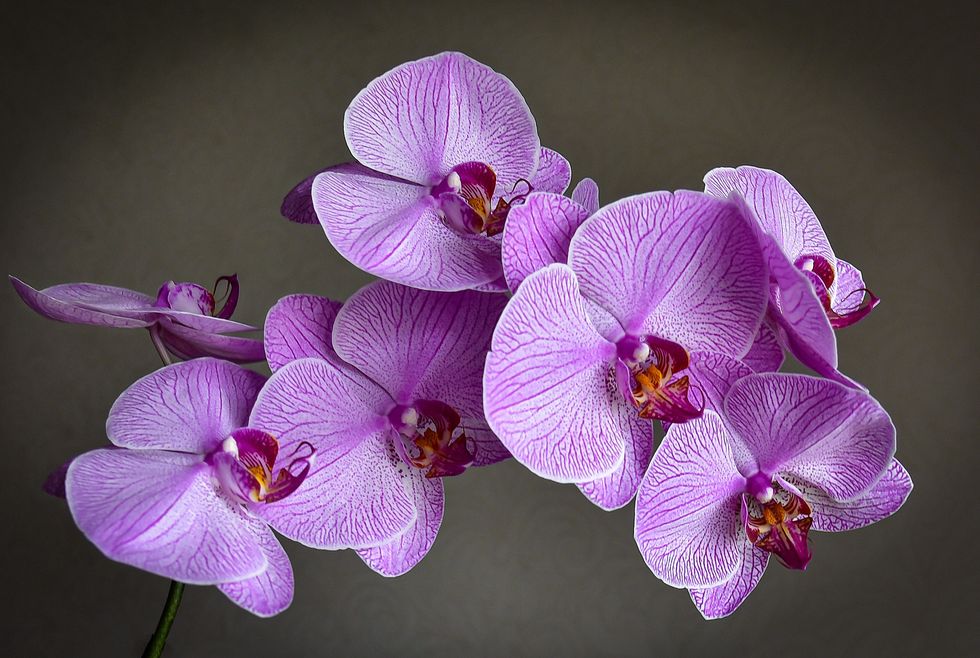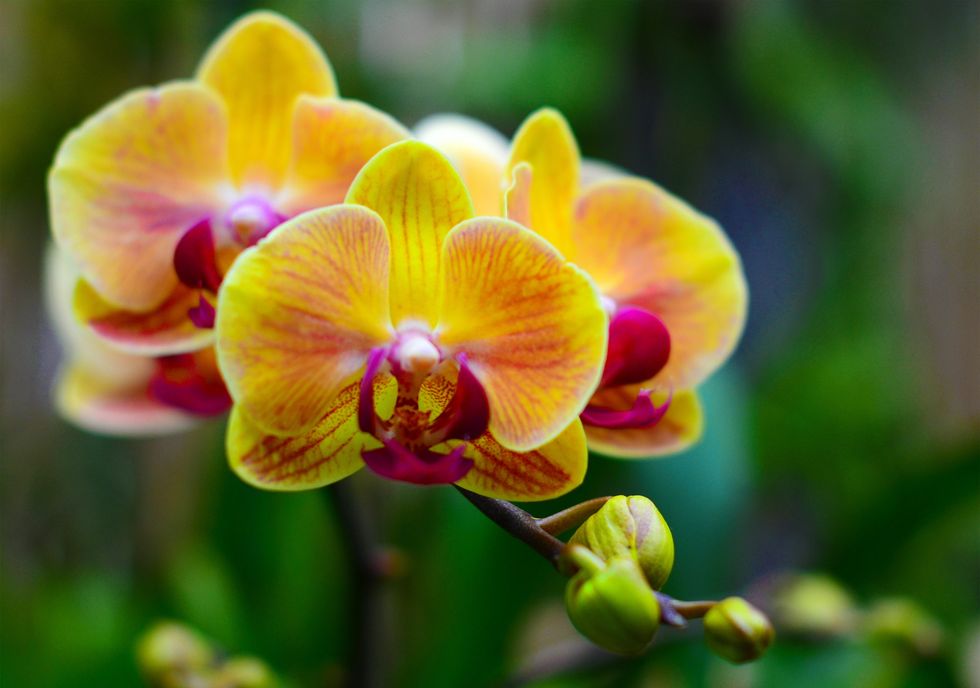'I'm a gardening expert - avoid a feeding mistake that can be toxic for orchids'
Orchids can survive for years with the right care tips
Don't Miss
Most Read
Trending on GB News
Orchids are renowned for their delicate beauty, but caring for these exotic plants can be a challenge for many enthusiasts.
Gardening expert at Hayes Garden World Angela Slater shared her top tips for nurturing these stunning flowers, from feeding and pruning to watering and pest control.
"The resting and growth periods need different feeding regimes," Slater explained, highlighting the importance of tailored care throughout the year.
Feeding orchids requires a nuanced approach. For Cymbidiums, she recommended "a weak balanced feed throughout the summer then switched to a dilute solution tomato fertiliser in August".

Orchids are known for their beauty
GETTYPhalaenopsis orchids benefit from a different regimen. "Feed phalaenopsis a dedicated flower fertiliser every second watering," Angela advised, suggesting to "dissolve it in a tub of water and keep this for every second watering".
However, she cautions against overfeeding: "If you feed at every watering, you can get a build-up of salts which can become toxic for the plant." This balanced approach ensures that orchids receive the necessary nutrients without risking damage from excessive fertilisation.
Pruning orchids requires precision, particularly for Phalaenopsis varieties. Angela said: "Cut the flower spike of a phalaenopsis back to just above the next node down the stem once the flower spike is down to the last couple of flowers." This technique encourages new growth.
Watering is equally crucial. The expert recommends a unique approach for Phalaenopsis, stating: "Wait until the thick roots go silver then to dip the whole pot into tepid water for a few seconds; this is enough to turn the roots green again."
For other orchid types, she suggested a similar method: "All orchids can be watered in this manner- just wait until they are slightly dry." However, some varieties require specific care.
"Miltonias need to be kept damp all year round," Angela noted, emphasising the importance of understanding each orchid's unique needs.
"Phalaenopsis are quite happy with central heating throughout their whole life." However, some varieties need specific conditions. "Cymbidiums need to be exposed to the cold in early autumn," she added.
For Cymbidiums, Angela recommended outdoor summer placement, followed by a brief cold exposure.
She said: "Once it has been exposed to a few nights of cold, but not freezing temperatures, bring it indoors in the autumn and place in a cool light position."
LATEST DEVELOPMENTS
 An expert shares orchid care tipsGETTY
An expert shares orchid care tipsGETTYRegarding light, most orchids prefer dappled conditions. Angela suggested: "An east or north facing windowsill would be ideal." For south or west-facing windows, she recommends moving plants "further into the room out of the direct rays of the sun" to prevent damage from excessive light exposure.
Repotting orchids should be done sparingly."Only re-pot an orchid when it is absolutely root bound and then just go up one size pot." She explained that excessive space can divert energy from flowering to root growth.
When repotting, Angela recommended removing as much old compost as possible and using "a dedicated orchid compost which is free draining."
Regarding pest control, orchids are generally resistant but can fall prey to red spider mites in warm, dry environments, so "deny these little pests a good home by regularly misting with tepid water."
Angela added: "They are recognised by their tiny little webs in the axis between stem and leaf- these show up when you give them a very fine mist." This preventative measure helps maintain healthy, pest-free orchids.








